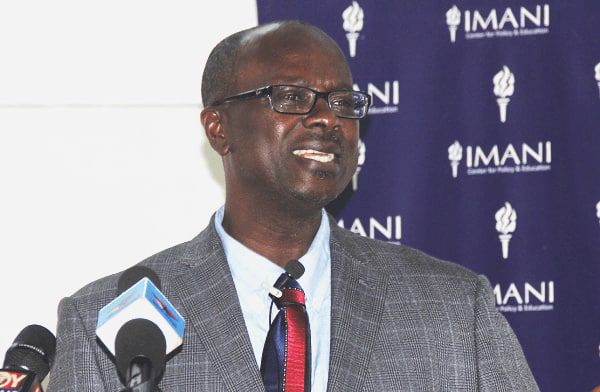The New Patriotic Party (NPP), Ghana’s main opposition party, has unveiled its roadmap for selecting its presidential candidate for the 2028 general elections, sparking criticism and raising concerns about internal party democracy and the broader political landscape. The party has scheduled its presidential primaries for January 31, 2026, well in advance of the general elections, but notably before the elections of its key party executives at various levels. This decision has drawn sharp criticism, particularly from legal scholar and political commentator Professor Stephen Kwaku Asare, known as Kwaku Azar, who argues that prioritizing the presidential primaries over internal party restructuring is a misguided approach. He contends that this sequencing prioritizes control over genuine renewal and undermines the party’s ability to address the underlying issues that led to its significant defeat in the previous election.
Professor Azar’s critique centers on the NPP’s seemingly hasty move to choose a flagbearer before addressing fundamental weaknesses within the party structure. He argues that the substantial loss of over 1.7 million votes in the 2024 elections necessitates a thorough internal review and restructuring before focusing on the next presidential race. The party’s decision to hold presidential primaries before electing constituency, regional, and national executives suggests a prioritization of top-down control rather than grassroots rebuilding. This approach, according to Professor Azar, ignores the crucial role of a strong party foundation in supporting a successful presidential campaign. He emphasizes the need to rebuild the party’s base and address internal issues before selecting a leader to represent the party in the 2028 elections.
The announced roadmap prioritizes the selection of a presidential candidate while postponing elections for polling station executives, constituency executives, regional executives, and national executives. This order of events has raised concerns about the party’s commitment to genuine reform. By focusing on the presidential race before addressing internal party dynamics, the NPP risks repeating past mistakes and overlooking the need for a strong and unified party structure. Professor Azar argues that the presidential primaries should be the culmination of a comprehensive reform process, not the starting point. He emphasizes the importance of addressing the root causes of the 2024 election defeat and rebuilding the party from the ground up before selecting its next presidential candidate.
The NPP’s decision to prioritize the presidential primaries could be interpreted as a move to maintain control within the party. By choosing a flagbearer early in the process, the party leadership may be attempting to influence the direction of the party and consolidate its power base. However, this approach risks alienating grassroots members and undermining the party’s ability to connect with voters. Professor Azar argues that true renewal requires a bottom-up approach, starting with strengthening the party’s foundation at the local level and ensuring that the voices of all members are heard.
The NPP’s approach contrasts with a more conventional approach to party rebuilding after an electoral defeat. Typically, parties undertake a thorough review of their performance, identify weaknesses, and implement reforms to address those issues. This process often involves engaging with grassroots members, conducting internal elections to refresh leadership, and developing new strategies to connect with voters. By prioritizing the presidential primaries, the NPP appears to be bypassing these crucial steps, potentially hindering its ability to learn from past mistakes and rebuild its support base. Professor Azar’s criticism highlights the importance of prioritizing internal reform and democratic processes over a rushed selection of a presidential candidate.
In essence, Professor Azar’s critique underscores a crucial aspect of party politics: the necessity of a strong and unified party structure to support a successful presidential campaign. He argues that the NPP’s focus on the presidential primaries before addressing internal party matters is akin to “planting seeds in soil that has not been tilled.” He contends that true renewal requires a commitment to rebuilding the party from the ground up, starting with strengthening its foundation at the local level. This approach would involve empowering local party members, promoting internal democracy, and ensuring that the party’s leadership reflects the will of its members. By prioritizing the presidential primaries, the NPP risks undermining its own efforts at rebuilding and renewal, potentially jeopardizing its chances of success in the 2028 elections.


